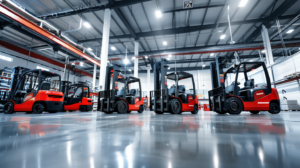When you’re managing a warehouse, distribution centre or production facility, choosing the right equipment is more than just buying machines—it’s about investing in productivity, cost-control, sustainability and long-term support. One significant decision many businesses face today is whether to buy an electric forklift—and, if so, where to source it. In that context, opting for a China electric forklift manufacturer can make a lot of sense. In this article we’ll explore why that is, what advantages and risks are involved, how to vet a reliable manufacturer, and how to decide whether a brand like Nicosail (among others) could fit your needs.
The term “electric forklift” here refers to vehicles powered by battery (rather than diesel or petrol) used for material handling: lifting, transporting pallets, loading/unloading trucks, and so on. Over recent years, electric models have become increasingly competitive and desirable. And Chinese manufacturers have stepped up in a big way—offering strong value, decent quality and growing innovation.
So if you’re asking: “Why should I choose a China electric forklift manufacturer for my business needs?”, let’s break it down.
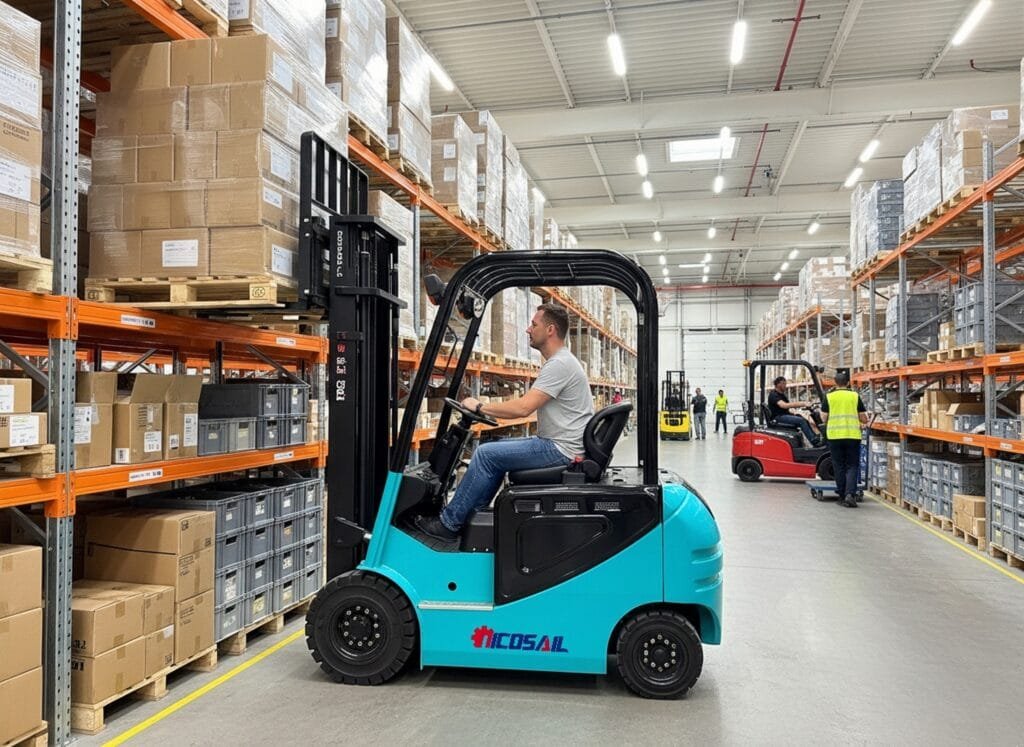
Advantages of Sourcing from a China Electric Forklift Manufacturer
Cost-effectiveness and value for money
One of the biggest motivations is the cost advantage. Chinese electric forklift brands often provide equipment at a lower price point compared to many Western or Japanese brands. According to market overview data, Chinese forklift brands can be 20–40% less expensive than their Western counterparts.
That doesn’t necessarily mean “cheap and unreliable”—it means you might get similar core functionality for a better price, freeing up budget for accessories, more units or other upgrades. For businesses where controlling capital expenditure is important, this is a big plus.
H3: Growing production capacity & innovation
China has become a major hub for electric forklift production. The article on electric forklift brands in China emphasises that Chinese manufacturers are known for “innovative technology, cost-effective solutions, and impressive production capacity.”
What this means for you:
- More manufacturers to choose from => better negotiation and more options.
- A large manufacturing ecosystem means faster lead times, widespread parts availability and potentially more modern features (e.g., lithium-ion batteries, smart control systems).
- The competitive environment pushes improvements in quality, support and design.
Electric forklift advantages (regardless of origin)
Of course, stepping into electric forklifts has advantages in itself—and a China manufacturer simply provides another path to access those benefits. Some of the key advantages:
- Zero tailpipe emissions: Electric forklifts don’t burn fuel, so indoor air quality improves and you avoid emissions concerns.
- Lower operational cost: Electric energy tends to cost less than diesel or LPG; fewer moving parts means less maintenance.
- Reduced noise: Electric models are quieter, which is beneficial in indoor warehouses or shared workspaces.
- Improved working environment: Better air and less noise can boost workforce comfort, productivity and safety.
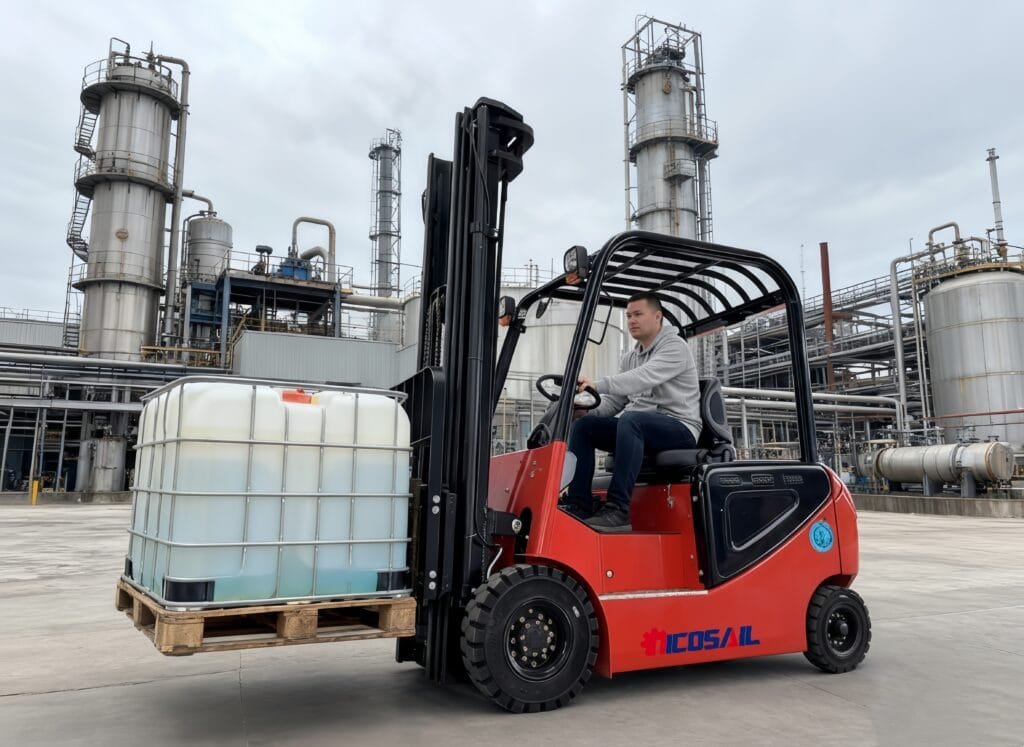
Increased availability of advanced features
Because many Chinese manufacturers serve both domestic and export markets, they are integrating more advanced features to meet global standards. For example:
- Use of lithium-ion or improved battery technologies for better runtime and quicker charging.
- Smart controls, IoT integration and safety features. The “Rise of Electric Forklifts” article highlights how electric forklifts are becoming connected assets in warehouses.
- Flexible configurations and customization for load capacity, work environment (indoor, outdoor, rough surface), etc.
Flexible customization & shorter lead time
With a large manufacturing base in China and many exporting companies, one benefit is the ability to get units configured to your needs: specific lift heights, load capacities, battery types, attachments, etc. Because of scale and competition, lead times may also be shorter compared to very bespoke units from niche manufacturers.
Export-friendly and scaling globally
Given that many Chinese manufacturers target export markets, they are more likely to offer international support, packaging, shipping experience and parts export logistics. If your business is global or growing, this makes the sourcing smoother.
Why It Makes Sense to Consider a Brand like Nicosail
When you’re looking at a China manufacturer, you’ll want to check a few credible companies. One option is the brand Nicosail. Here’s why they are worth a look, and how they fit into the wider context.
Who is Nicosail?
Nicosail (via e.g., Jining Nicosail Machinery Co., Ltd.) is a China-based manufacturer that supplies wheels loaders, forklifts and other construction/handling equipment. Their listings show a range of electric forklift models, hand-pallet trucks, stackers and more.
Why they might be a smart choice
- Because they are part of the Chinese manufacturing ecosystem, their pricing may reflect the cost-benefit advantage mentioned above.
- They appear to offer electric models (battery-powered) with features such as low-noise, low-emissions design.
- They might offer versatility: if your business uses multiple types of machines (e.g., forklifts + other handling equipment), a manufacturer like Nicosail could give you diversified support.
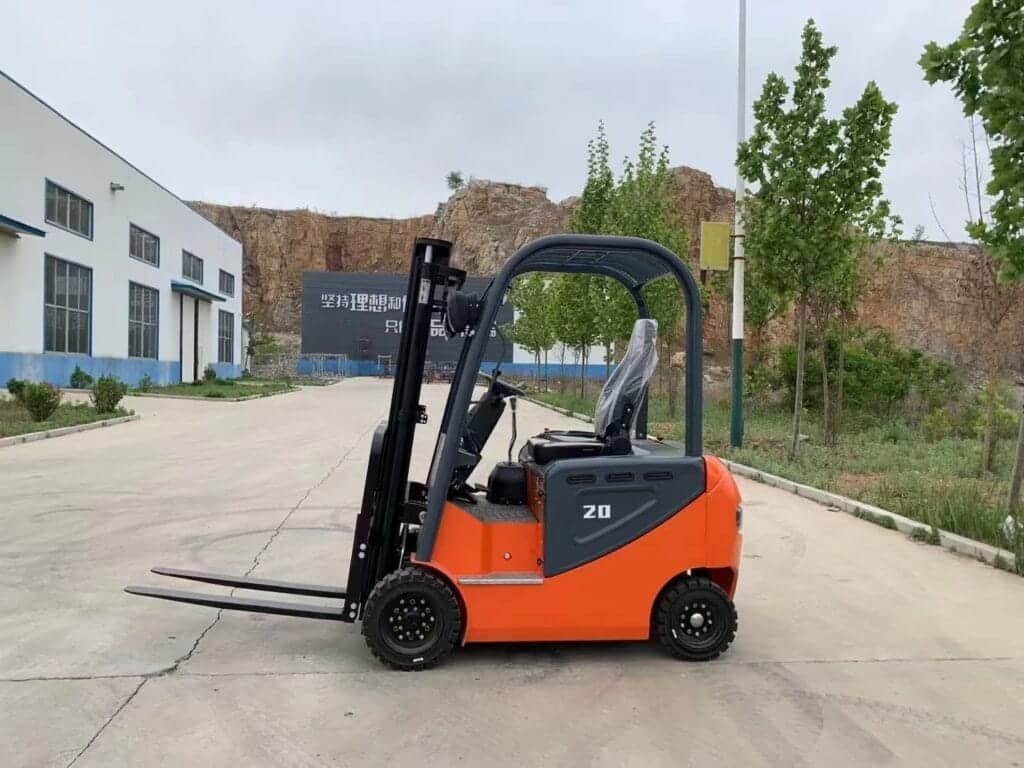
How to vet them (and all manufacturers) carefully
While considering Nicosail (or any China electric forklift manufacturer), you’ll still want to run due diligence:
- Check certifications & standards: Are the forklifts CE-marked (for Europe), or certified for your region? Does the manufacturer follow ISO or other quality standards?
- Review warranty & after-sales support: What parts availability is there? How about local servicing or import of spare parts?
- Assess battery technology & runtime: For electric forklifts, battery life, charging time and replacement cost matter a lot.
- Inspect build quality, components & safety systems: Make sure mast, hydraulics, controller, stability systems are solid.
- Check export logistics and shipping time: Even with Chinese manufacturers the lead time can vary; shipping to Japan (for you in Inzai, Chiba) might involve customs, freight cost, etc.
- Ask for references / testimonials: Has the manufacturer done business in your country or region? What is the experience of other clients?
- Total cost of ownership (TCO) considerations: Not just purchase cost, but cost of battery replacement, parts, maintenance, downtime.
So including Nicosail in your shortlist makes sense—just treat them as one candidate among a well-vetted list.
What Business Needs Should Guide Your Choice of Electric Forklift Manufacturer?
When you’re buying electric forklifts for your business, you’ll have specific needs. These needs will shape whether a Chinese manufacturer (or a local brand) is a better fit. Let’s walk through important criteria.
Work environment (indoor vs outdoor, rough surface vs smooth)
- If your warehouse is indoor, with smooth concrete floors and narrow aisles, electric forklifts shine.
- If you work outdoors, on rough terrain, uneven surfaces or inclement weather, you’ll need a model rugged enough for that. Many Chinese manufacturers can provide such configurations, but you’ll need to check.
- Electric forklifts from export-oriented Chinese manufacturers increasingly support both indoor and mild outdoor applications. For instance, electric forklifts offer low noise and zero emissions, making them ideal for indoor settings.
Load capacity and lift height
- What size loads do you move? How high do you lift pallets or racks?
- Chinese manufacturers offer a wide range of capacities; you’ll want to ensure the model you pick can handle your worst case.
- Battery size, mast height and stability matter; make sure the manufacturer is comfortable with your specification.
Battery technology and charging infrastructure
- Are you using lead-acid batteries, lithium-ion, or other battery types? Lithium-ion offers faster charging, longer life, and less maintenance—but typically higher up-front cost.
- Does the manufacturer offer battery options? For example Nicosail lists electric forklifts with lithium-ion batteries for zero emissions, low noise and long performance.
- What’s your charging setup? If you have frequent shifts and high usage, the battery and charging speed matters.
- Consider maintenance of the battery system: replacement cost, availability of modules, serviceability.
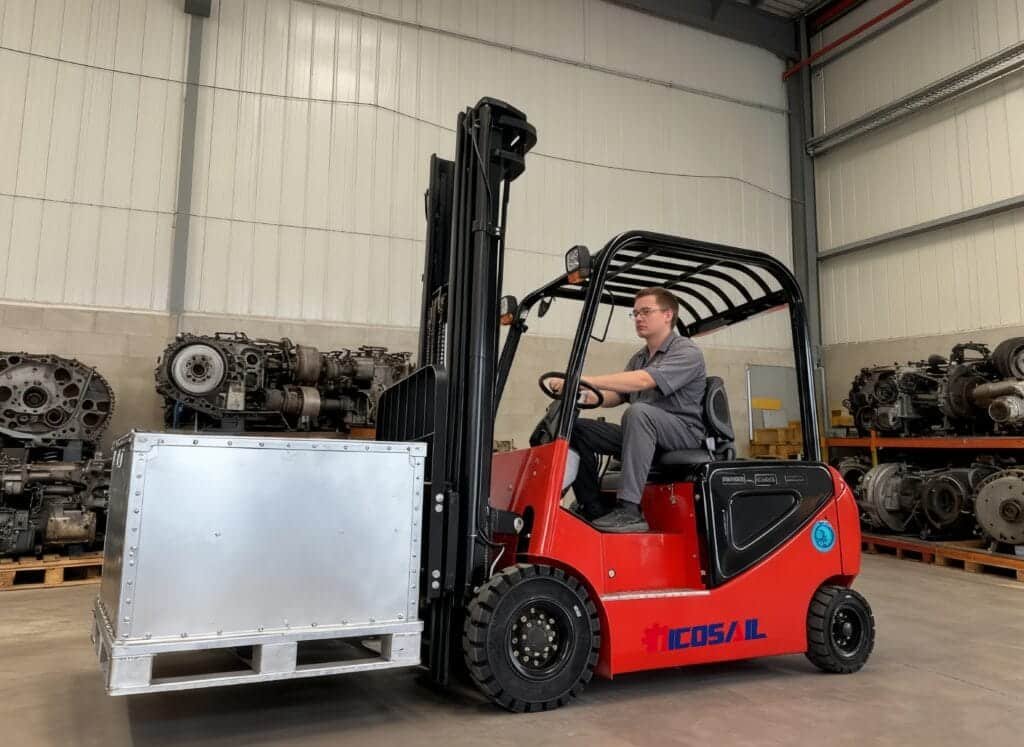
Parts, servicing and local support
- A key risk of importing equipment is service and parts. Are there local service centres or the ability to import parts quickly?
- Ask the manufacturer which parts are most likely to wear and how easy replacements are.
- Make sure the manufacturer can provide manuals in your language, support training for operators, and ideally spare-parts kits.
Total cost of ownership (TCO) and pay-back
- Factor in purchase cost, shipping, import duties, installation, operator training, maintenance, battery replacement, downtime, and resale value.
- Electric forklifts often offer lower lifetime cost due to fewer fuel costs and lower maintenance. For example the article on 3-ton electric forklifts highlights lower operating costs and fewer moving parts.
- When sourcing from China, you might gain purchase cost advantage; just check import/logistics cost.
H3: Compliance, sustainability and corporate image
- Many businesses now have sustainability targets or ESG (environmental, social & governance) goals. Electric forklifts help. For example, electric forklifts produce no tailpipe emissions, support cleaner indoor air and align with environmental regulations.
- A Chinese manufacturer that can show export compliance, international certification, and good environmental credentials adds to your value proposition.
- Also consider your market: if you serve customers who emphasise sustainability, you can highlight your forklift choices as part of your green story.
Why Choose an Electric Forklift from a China Manufacturer Rather Than Local?
Some business owners ask: “Why not buy from a local manufacturer (in Japan or nearby) where service/support is closer?” That’s a valid question. Let’s weigh the trade-offs.
Price vs proximity trade-off
- Local manufacturers may offer better proximity, faster service, possibly more recognized branding—but likely at a higher cost.
- China manufacturers often offer very competitive pricing, though support may rely on import logistics or remote support.
- If you’re comfortable managing parts shipment, training and remote support, then the cost savings can be considerable.
Access to a broader range of specs and innovations
- China has a large number of manufacturers competing; this means you might find more niche or custom specs, or more rapid innovation.
- For example the “Electric Forklift Brands and Production Capacity in China” article emphasises the breadth of options in the Chinese market.
Scaling for multiple units and expansion
- If your business plans to scale, and you anticipate buying more units later, a China supplier might be able to scale production accordingly and keep costs down.
- If you buy only one local unit and then later want more, you may face higher marginal cost; whereas aligning early with a China manufacturer can help standardize units, parts and training globally.
Risks to manage
While there are many upsides, you should clearly recognise the risks and how to mitigate them:
- Import logistics: Shipping, customs duties, delivery times—need to be factored in.
- After-sales service: If the manufacturer doesn’t have local servicing, you’ll need to plan how to handle breakdowns, parts import, training.
- Spare-parts availability: Make sure your supplier keeps spare parts in stock or can deliver quickly.
- Quality control & warranty: Ensure reputable manufacturer, good reviews, clear warranty terms.
- Language/cultural barrier: Communication, manuals, training may need extra attention.
- Resale value: Depending on your region, resale of an imported brand might differ, though electric forklifts often hold good value if maintained.
If you’re willing to manage these and put in the effort up front, the benefits can overwhelmingly favour sourcing from China. And that’s exactly where the brand Nicosail can come into view—as a viable, cost-effective example.
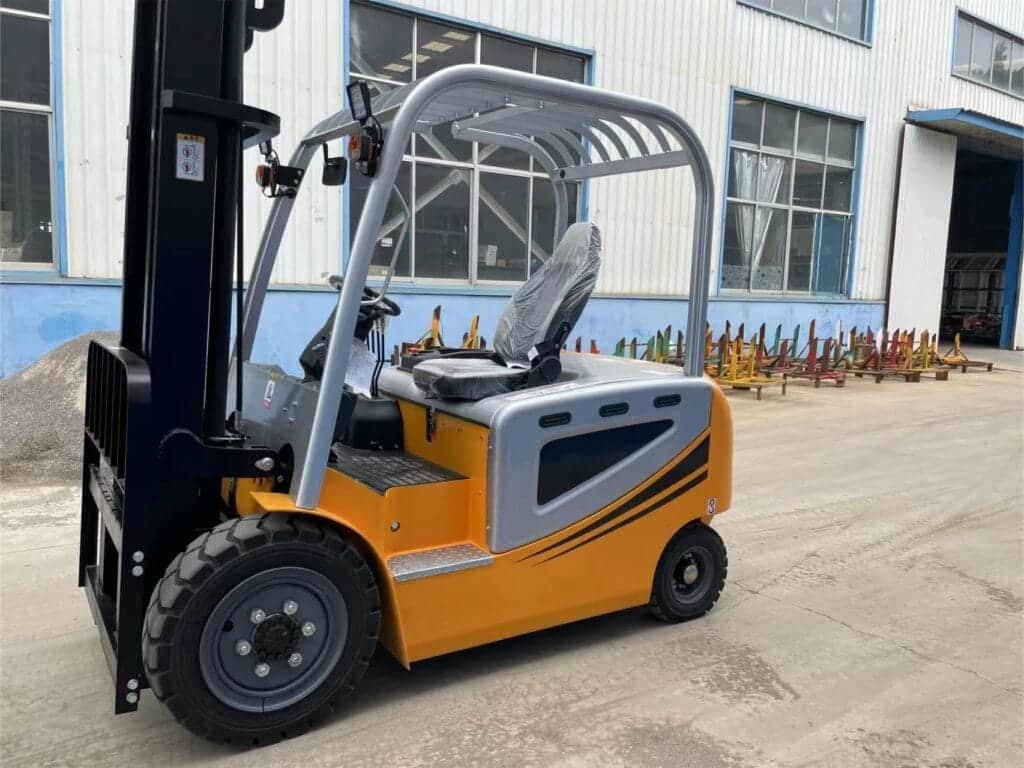
How to Choose the Right China Electric Forklift Manufacturer (Checklist)
Here’s a practical checklist you can use when evaluating manufacturers, including but not limited to Nicosail.
| Criteria | Why it matters | What to ask / check |
|---|---|---|
| Manufacturer credentials | You want a company with proven experience, export track-record, credible references. | How many years in business? Export experience? Certifications (ISO, CE, etc.)? |
| Product range & specifications | Ensures they can meet your load capacity, lift height, battery type and work environment. | Show me model specs. Can you customise? Battery options? |
| Battery & electric drivetrain tech | Core to performance and cost-efficiency in electric forklifts. | What battery type? Runtime? Charging time? Life expectancy? Replacement cost? |
| Parts & service support | Crucial for long‐term uptime & maintenance. | Spare-parts inventory? Local distributor or partner? Service network? |
| Total cost of ownership estimate | Helps you compare real cost across brands. | Can you provide TCO estimate? What is warranty? Maintenance schedule? |
| Compliance & export readiness | For smooth import, legal compliance and reliability. | Are products CE-certified (if needed)? Can they handle export logistics? What are shipping/lead-times? |
| After-sales support & training | Operator training reduces accidents, improves efficiency. | Do you provide manuals/training? What’s the warranty? Response time for issues? |
| References & reviews | You want to hear from people who’ve used the machines. | Can you give client references? Are there case-studies? Are there user reviews? |
When you apply this checklist, you’ll likely narrow your list to a handful of credible manufacturers. At that point, you can compare cost, specs, support and timeline, and decide which offers the best overall package.
Making the Case for Your Business – Real-World Benefits
Let’s imagine you’re running a warehousing operation in Inzai, Chiba Prefecture (Japan). You need to move pallets, load/unload trucks, shift goods between racks, and you’re considering replacing or adding new forklifts. What happens when you choose an electric forklift from a China manufacturer?
Scenario: indoor warehouse, 3-ton loads, two shifts a day
In an indoor facility, perhaps you’re lifting about 3 tons per move, maybe 6-8 hours a shift, two shifts. The advantages:
- You choose a 3-ton rated electric forklift (many Chinese manufacturers publish this spec). For example an article emphasised 3-ton electric forklifts offer zero emissions, lower cost and reduced noise.
- You avoid diesel or LPG fuel handling (ventilation, fumes, extra maintenance).
- The cost of electricity charging is lower than diesel fuel, so your daily operating cost goes down.
- If you sourced from a China manufacturer, you may pay less up-front, freeing budget for battery spares or attachments.
- Quiet environment improves working conditions; you’re in Japan, and improving operator comfort has value.
- If the manufacturer (such as Nicosail) offers flexible configurations, you might spec the forklift to suit local conditions (battery suited for ambient temperature, parts easy to replace in Japan, etc.)
Scenario: future growth & sustainability
When you plan ahead:
- Cargo volume will grow; maybe you’ll add more forklifts. A China manufacturer with scalable production means you might procure additional units at similar specs and better price.
- Sustainability: You can present to stakeholders that you chose electric forklifts with zero emissions, contributing to your corporate responsibility goals (less indoor air pollution, better energy efficiency).
- If your business deals with export, you may think about using forklifts in multiple countries—having one manufacturer simplifies standardisation.
Scenario: budget control & ROI
Consider ROI (Return on Investment):
- Lower purchase cost + lower operating cost = faster pay-back period.
- If your Chinese manufacturer offers good warranty and parts support, downtime is low ⇒ higher uptime and productivity.
- Example: If you avoid fuel costs, reduce maintenance parts (engine oil, filters) and improve operator efficiency (thanks to modern electric forklift features), you may see cost savings adding up yearly.
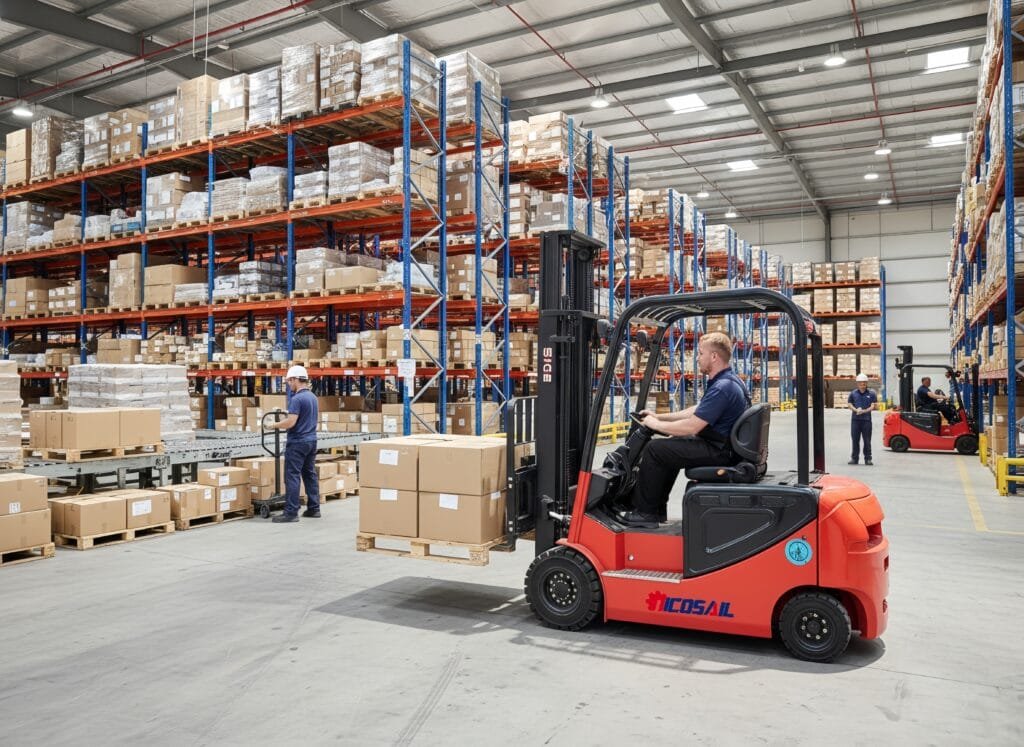
Scenario: importing and support in Japan
Since you are in Japan (Inzai, Chiba), ensure you check:
- Are there local Japanese service partners for the China manufacturer?
- Import duties, shipping time, and language in manuals & support.
- If the manufacturer offers spare parts shipments to Japan, you’ll reduce downtime.
- Local training for operators may be arranged; you might want to send one supervisor to China factory or arrange remote training.
Potential Challenges (and How to Address Them)
No solution is perfect, so let’s be realistic about the challenges of choosing a China electric forklift manufacturer—and how you can mitigate them.
Challenge: After-sales service and parts logistics
Potential issue: If the manufacturer is far away or the local distributor is weak, delays in servicing or parts delivery can hurt operations.
Mitigation: Choose a manufacturer (or partner) with proven export support, spare-parts inventory in or near your region, and clear support response times. Ask for service level agreements (SLAs) up-front.
Challenge: Quality consistency and reliability
Potential issue: Some cheaper units may compromise on component quality (mast, hydraulics, battery, controller) which may reduce lifetime or increase downtime.
Mitigation: Set clear acceptance criteria, request factory inspection or audits, check references, insist on warranty terms, visit local users if possible, and inspect sample machines before committing.
Challenge: Battery technology risk
Potential issue: Electric forklifts’ performance heavily relies on battery quality, charging infrastructure, and lifecycle. If the manufacturer uses older lead-acid battery or cheap battery modules, your operating cost might be higher than expected.
Mitigation: Ask for battery specs (type, cycles, expected lifespan), check what battery replacement cost is, check charging time, and ensure the vendor has good battery credentials. Also verify compatibility with local power supply.
Challenge: Regulatory & import issues
Potential issue: Importing equipment can involve customs duties, shipping delays, compatibility with local regulations, spare-parts availability.
Mitigation: Work with a logistics partner, ensure the equipment meets required safety certifications in your country, clarify warranty across borders, and check if there’s local language support.
Challenge: Resale value or brand recognition
Potential issue: In some regions, a less-known brand may have lower perceived resale value, or parts market may be weaker.
Mitigation: Choose a manufacturer with export footprint and reputation. Keep good maintenance history so resale value improves. Consider buy-back, trade-in or standardized fleet to enhance value.
Step-by-Step Process to Source Your Electric Forklift From China
Here’s a suggested process you can follow to ensure you get the right machine, from a reliable manufacturer, without surprises.
- Define your requirements clearly
- Load capacity, fork carriage, lift height, working environment (indoor/outdoor), battery type, shift hours, charging schedule.
- Operator skill level, maintenance budget, parts availability.
- Budget and expected ROI timeframe.
- Short-list credible China electric forklift manufacturers
- Use directories, trade shows, references. Include brands like Nicosail, but also compare with others.
- Check export credentials, production capacity, product portfolio.
- Issue enquiry and request specifications & quotation
- Ask for detailed specs: battery type, runtime, charge time, parts list, warranty, shipping cost.
- Request FOB price, CIF Japan (Inzai/Chiba) if possible.
- Evaluate proposals using your checklist
- Use the checklist from above (manufacturer credentials, specs, parts/support, TCO, compliance).
- Compare not just purchase price but TCO, warranty, support.
- Visit factory or conduct audit (if feasible)
- If you can, visit the manufacturer in China, inspect production line, quality control, test models.
- Alternatively, ask for video inspection or third-party audit.
- Place order and agree contract terms
- Clearly state warranty, spare parts commitments, shipping/lead time, acceptance criteria, penalty for delays.
- Clarify installation, commissioning, training, documentation.
- Shipping, import & installation
- Arrange shipping, customs clearance, local logistics from port to your site.
- Plan for installation, operator training, charging station setup.
- Commissioning and operator training
- Ensure machine is installed, tested, and operator and maintenance staff are trained.
- Set up preventive maintenance schedule.
- Monitor performance and maintain relationship
- Track uptime, maintenance cost, battery health, productivity.
- Keep spare parts stock, plan battery replacements.
- Maintain good relationship with manufacturer for future units or expansion.
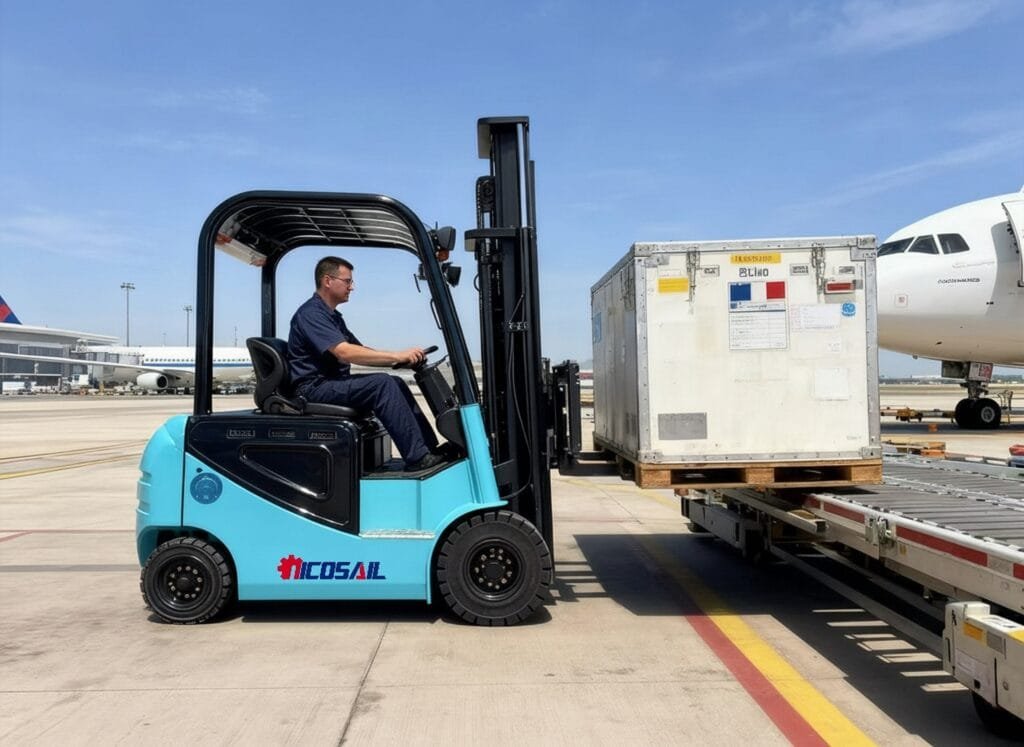
Summary & Final Thoughts
To sum up: choosing a China electric forklift manufacturer can offer strong value, broad options, and modern capabilities—all of which can benefit your business. Electric forklifts themselves bring major advantages (lower cost, better environment, quieter operation) and Chinese manufacturers have matured to the point where they are globally competitive. Of course, you still must do your homework: vet the manufacturer, check specs, plan for service & parts, manage logistics, and look at the total cost of ownership.
A brand like Nicosail fits into this narrative: one of the Chinese manufacturers offering electric forklift models, export-capable, and worth including in your evaluation. If you decide to work with them (or others), treat them like a partner and make sure their offering aligns with your business needs—rather than picking based purely on lowest price.
At the end of the day, your goal is to match the machine to your workflow, environment and growth path, while ensuring you get reliable performance and good lifetime value. If you do that, sourcing from a China electric forklift manufacturer is not just viable—it could be a smart strategic move that supports your business now and into the future.
I hope this article gives you a clear, friendly, and practical overview of the topic. If you like, I can also pull together a comparison of top China electric forklift manufacturers (including Nicosail) with specs, pricing and regions supported, tailored for Japan. Would you like me to do that?
FAQs
Q1: Are electric forklifts from China reliable compared to Western brands?
A1: Yes—many Chinese manufacturers today offer very reliable electric forklifts. The key is choosing one with good export credentials, parts supply, and a track record. As the industry notes, Chinese brands are increasingly innovative and cost-effective.
Q2: What about the battery life and maintenance from Chinese models?
A2: Battery life is critical. Many Chinese electric forklifts now use lithium-ion or advanced battery tech (for example, Nicosail electric models list lithium-ion options). You should check the number of cycles, expected years of life, charge time, replacement cost, and support for the battery system.
Q3: How do I ensure parts and servicing will be available in Japan?
A3: Ask the manufacturer about their service network or parts export capability to Japan. Ideally, you want local stock or rapid shipping. Clarify warranty for your region and ensure operators are trained. Import logistics should be well understood.
Q4: What are typical cost savings when choosing a Chinese electric forklift?
A4: While the exact figure depends on model and region, some reports say Chinese forklift brands offer equipment 20-40% less expensive than Western brands. Combine that with lower operating cost (electric vs fuel) and the savings can add up.
Q5: Is there any downside to choosing a China electric forklift manufacturer?
A5: The main downsides are potential service/parts delays, import logistics, and quality variability if you don’t vet the manufacturer. You’ll need to proactively manage those risks. Choosing a reputable manufacturer helps mitigate that.
Q6: When should I consider a local manufacturer instead?
A6: If you need ultra-fast local support, very specific regulatory compliance, or are operating in a very niche environment with heavy outdoor usage and accessible service is critical, then a local manufacturer may win. But if your needs align with what Chinese electric forklift manufacturers offer, they can be a smart choice.


